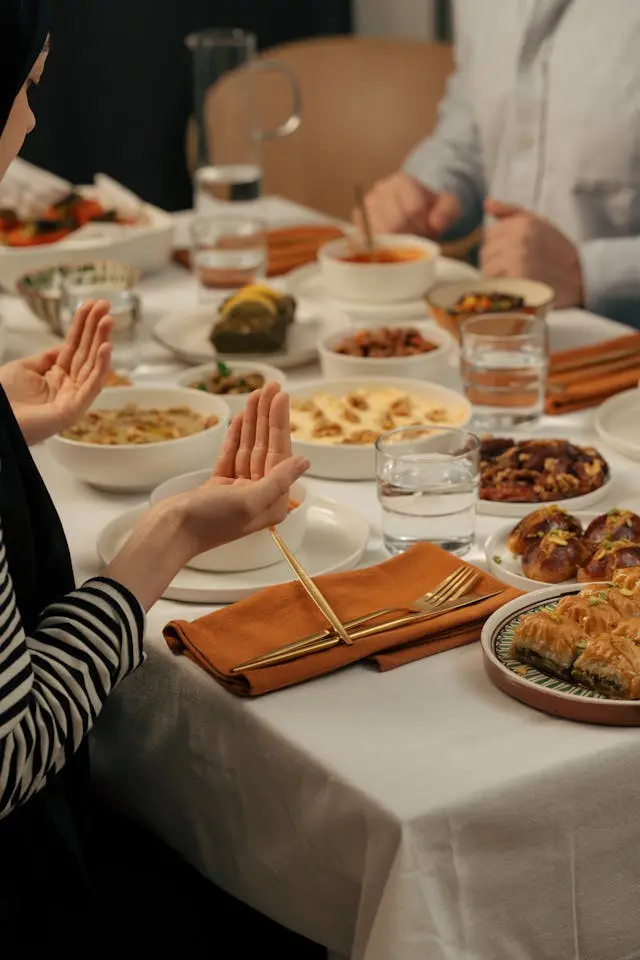THE TRANSFORMATIVE POWER OF RAMADAN FASTING

One Month of Fasting: Ramadan’s Deep Impact on Human Life
Ramzan Mubarak, the holy month of fasting, holds immense spiritual, physical, and social significance in the lives of Muslims. For over a billion Muslims around the world, this month is a time of deep reflection, devotion, and renewal. Fasting during Ramadan is not merely a physical act of abstaining from food and drink but an opportunity for a holistic transformation, both internally and externally. This month offers countless benefits that stretch beyond spiritual growth. Influential Islamic scholars such as Molana Tariq Jameen, Zakir Naik, and Molvi Asrar emphasize the profound impact of fasting, and their teachings provide insights into why Ramadan is such a cornerstone of Islamic life.
The Spiritual Significance of Ramadan
Fasting during Ramadan is a deeply spiritual practice. It is one of the Five Pillars of Islam and a time when Muslims seek to increase their devotion to Allah. The fast represents a physical manifestation of a Muslim’s commitment to spiritual purification and self-discipline. Molana Tariq Jameen, one of the leading scholars of Islam, emphasizes that Ramadan offers a chance to cleanse not just the body but the soul.
In his speeches, Molana Tariq Jameen often underscores that fasting is an act of submission to the will of Allah, and it instills humility. Ramadan helps Muslims recognize that food, water, and all the comforts of life are blessings from Allah, and it is through fasting that one can develop greater gratitude. The act of fasting during the month encourages believers to focus on their relationship with Allah, deepening their spiritual connection. According to Molana Tariq, the month of Ramadan offers an opportunity for repentance and forgiveness, where the sincere believer’s past sins can be washed away.
Ramadan, according to Molana Tariq, is a time for self-restraint. It teaches Muslims to control their desires and seek spiritual fulfillment over worldly pleasures. During this month, Muslims engage in extra prayers (Salah) and recite the Quran more frequently. This helps them realign their priorities, moving closer to Allah through sincere worship. The feeling of emptiness created by fasting serves as a reminder that true fulfillment comes from devotion and submission to Allah.

Physical Benefits of Fasting During Ramadan
While fasting is often seen as a religious act, it also offers remarkable physical benefits. Dr. Zakir Naik, a renowned Islamic scholar and physician, frequently addresses the benefits of fasting from both a spiritual and scientific perspective. He points out that fasting during Ramadan not only cleanses the soul but has numerous positive effects on the body. According to Zakir Naik, fasting promotes detoxification, allowing the body to rid itself of toxins accumulated over time.
When a person fasts, the digestive system gets a break from constantly processing food. As a result, the body can focus on healing, repairing, and restoring other systems. This rest leads to improved metabolism, better digestion, and even weight management. Fasting also stimulates the production of antioxidants in the body, which can help combat diseases and inflammation. Studies show that fasting during Ramadan can help reduce the risk of cardiovascular diseases, improve brain function, and lower blood sugar levels.
Additionally, fasting helps increase the body’s production of insulin, thereby improving its overall ability to manage blood sugar. Zakir Naik often highlights how fasting during Ramadan helps regulate insulin sensitivity, which is particularly beneficial for those at risk of Type 2 diabetes.
Dr. Zakir Naik also explains that fasting has been scientifically proven to boost longevity by reducing the risk of cancer and other chronic diseases. In his talks, he mentions how the reduction in food intake during fasting triggers a process known as “autophagy,” in which the body breaks down and recycles damaged cells. This self-repair process is a key to maintaining long-term health.

The Social and Emotional Benefits of Ramadan
Ramzan is not only a time for individual reflection but also a period for strengthening social bonds and building a sense of community. Molvi Asrar, a respected Islamic scholar, emphasizes that Ramadan brings the Muslim ummah (community) together. The month of fasting is a communal experience, with Muslims gathering for prayers, shared meals, and acts of charity.
Fasting during Ramadan encourages generosity and compassion. One of the key aspects of Ramadan is giving to those in need, and this sense of charity is emphasized by Molvi Asrar in his teachings. He explains that fasting brings about empathy for the poor and needy, as those who fast understand what it feels like to experience hunger. In this way, Ramadan becomes a time to give back, and acts of charity (Zakat) and kindness are abundant. Muslims are encouraged to pay Zakat (almsgiving) during Ramadan to help those who are less fortunate.
The daily breaking of the fast (Iftar) is another important social event that strengthens community ties. Iftar brings together family members, friends, and neighbors to share meals, celebrate their collective faith, and reflect on the blessings of the month. Molvi Asrar often emphasizes that these gatherings are not only a time to enjoy food but a moment for deepening relationships and fostering a sense of belonging and unity.
The spiritual and emotional rewards of Ramadan are not only experienced individually but also collectively, as fasting builds a shared bond among Muslims worldwide. The experience of fasting together, in unity, helps reinforce a sense of global solidarity and reminds Muslims of their shared faith and humanity.
Fasting as a Pathway to Self-Improvement
Ramzan is a time for introspection, self-improvement, and self-control. The physical act of fasting teaches patience and resilience. Molana Tariq Jameen notes that fasting is a reminder of the importance of controlling one’s desires. It is a period of intense self-discipline that encourages the believer to overcome the temptations and distractions of the material world.
The act of refraining from food, drink, and other worldly pleasures during Ramadan fosters a greater sense of discipline that extends beyond the month itself. This period of self-restraint trains Muslims to adopt healthier habits, spiritually and physically. It encourages them to remain patient in times of hardship and to persevere in the face of trials. Molana Tariq Jameen stresses that Ramadan serves as a time for believers to “reboot” their spiritual lives and renew their commitment to Allah.
Furthermore, Zakir Naik points out that fasting has psychological benefits as well. It helps break unhealthy attachments to food, social media, and material possessions. The emotional clarity gained during Ramadan allows individuals to reexamine their goals in life and reassess their personal values. Ramadan fosters mindfulness and encourages the believer to focus on what truly matters: spiritual growth, family, and helping others.
What Molvi Asrar Says About Ramadan
Molvi Asrar offers a unique perspective on the significance of Ramadan. He emphasizes that fasting is not just about abstaining from food, but it is a time to cleanse the heart and mind. According to him, fasting should lead to spiritual transformation, where Muslims cultivate virtues such as patience, humility, and self-control.
Molvi Asrar believes that Ramadan provides an opportunity for believers to attain Taqwa (God-consciousness). By turning away from worldly distractions and focusing on worship, the believer can develop a greater sense of spiritual awareness. The month of Ramadan is a time to purify one’s heart, break free from negative habits, and develop a closer connection with Allah.
He also encourages Muslims to focus on the deeper spiritual meaning of fasting. For Molvi Asrar, the goal of Ramadan is not simply to endure hunger but to achieve a deeper understanding of the essence of Islamic worship and devotion. It is about striving to become a better person—more compassionate, more patient, and more connected to Allah and humanity.

Conclusion
Ramzan Mubarak is more than a month of fasting; it is a time for spiritual renewal, physical health, and social cohesion. The teachings of Molana Tariq Jameen, Zakir Naik, and Molvi Asrar offer valuable insights into the multifaceted nature of this holy month. Whether through spiritual reflection, physical rejuvenation, or the fostering of compassion and community, Ramadan plays a transformative role in the lives of Muslims around the world.
By engaging in fasting, Muslims embark on a journey of self-discipline, self-improvement, and spiritual growth. This holy month serves as a reminder of the importance of gratitude, patience, and charity. As the faithful seek to purify their hearts and souls, they also strengthen their relationships with Allah, their community, and their fellow human beings.









